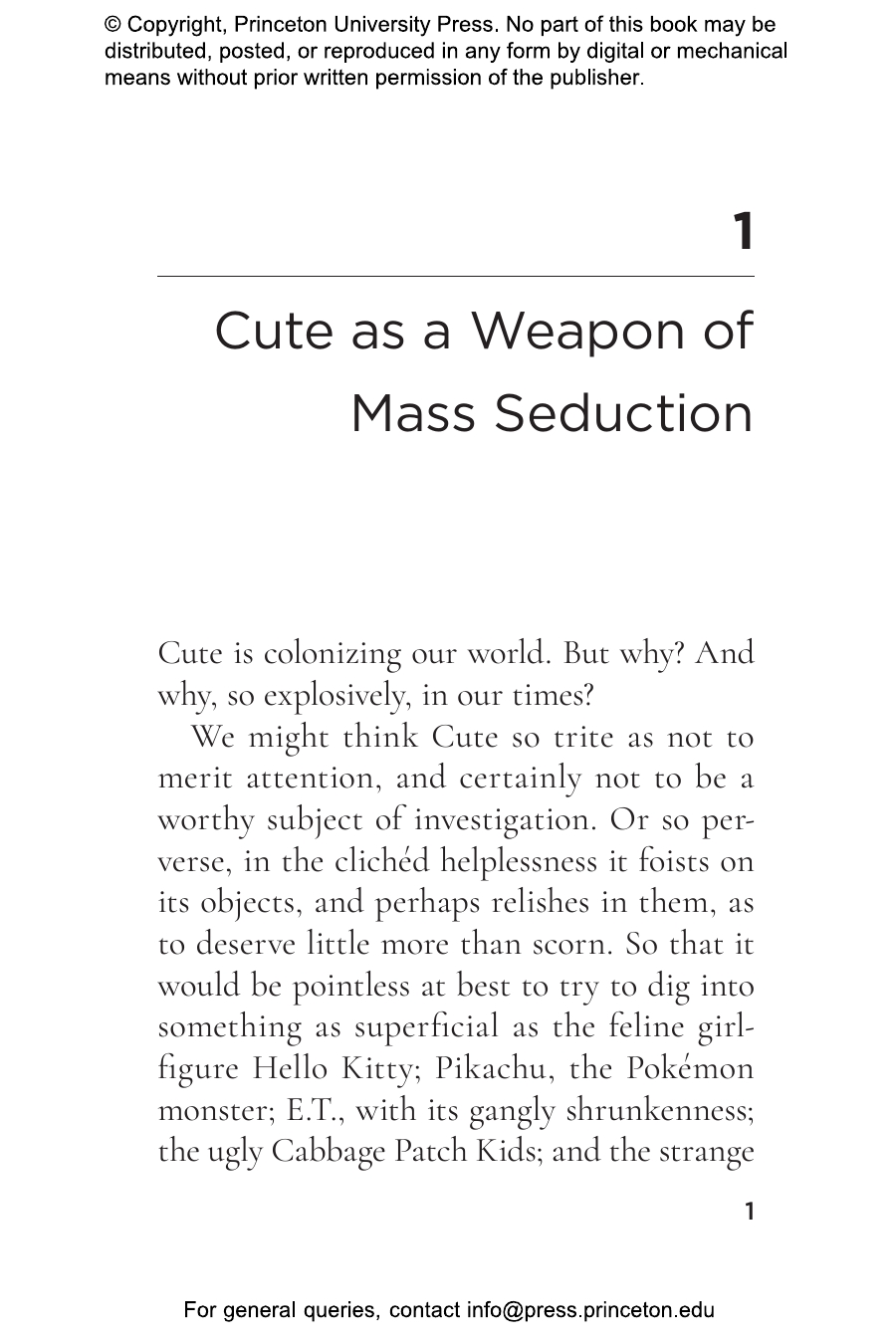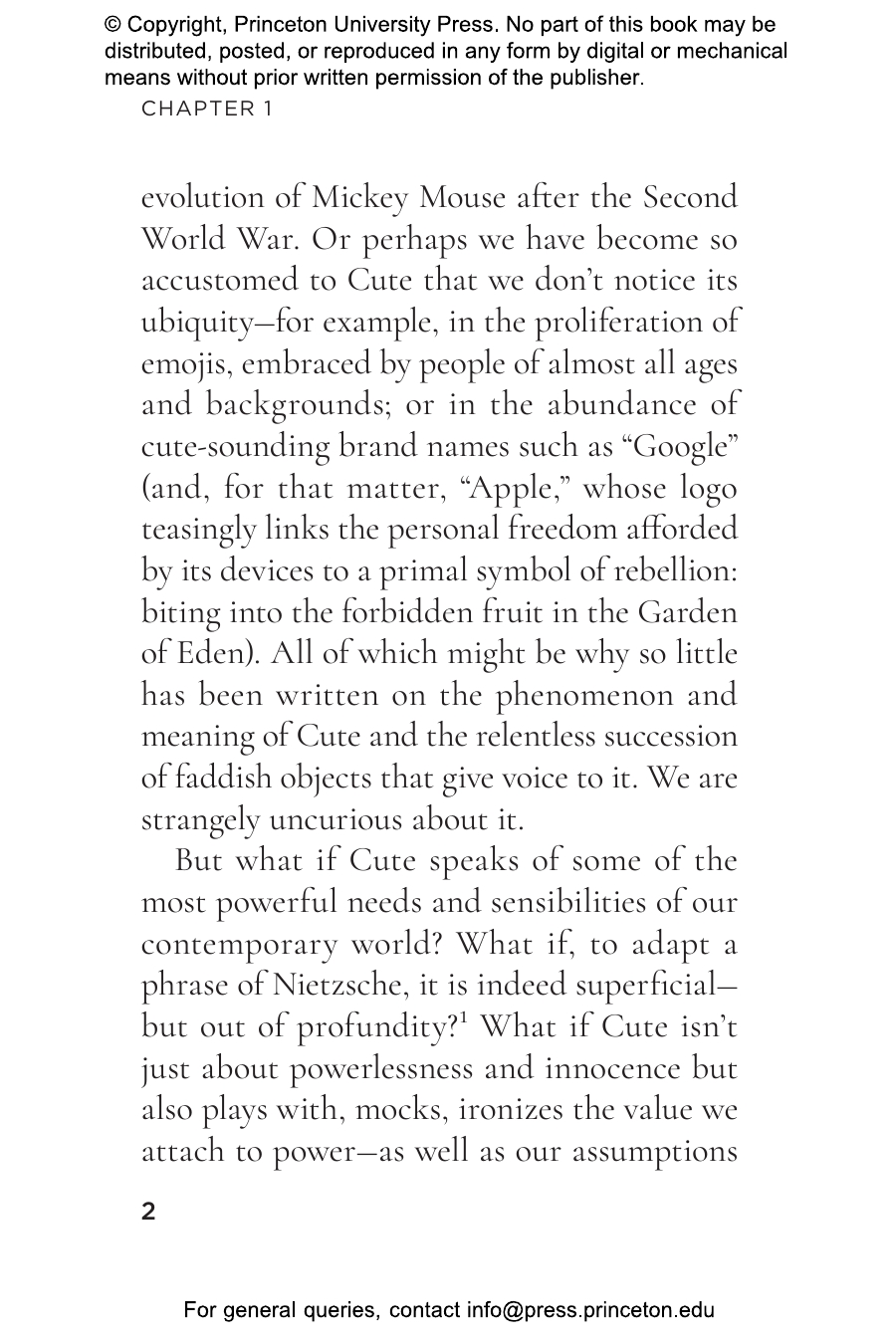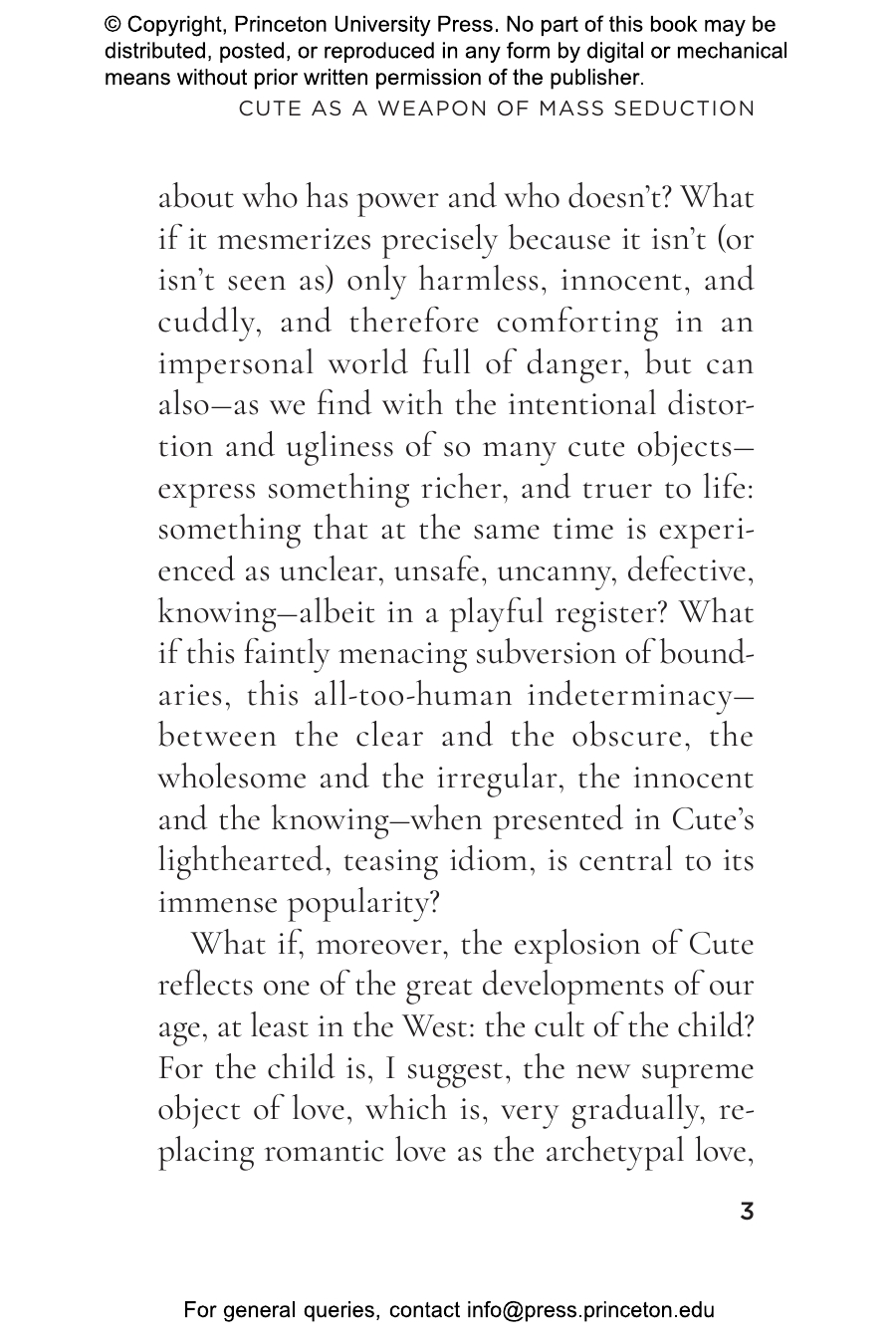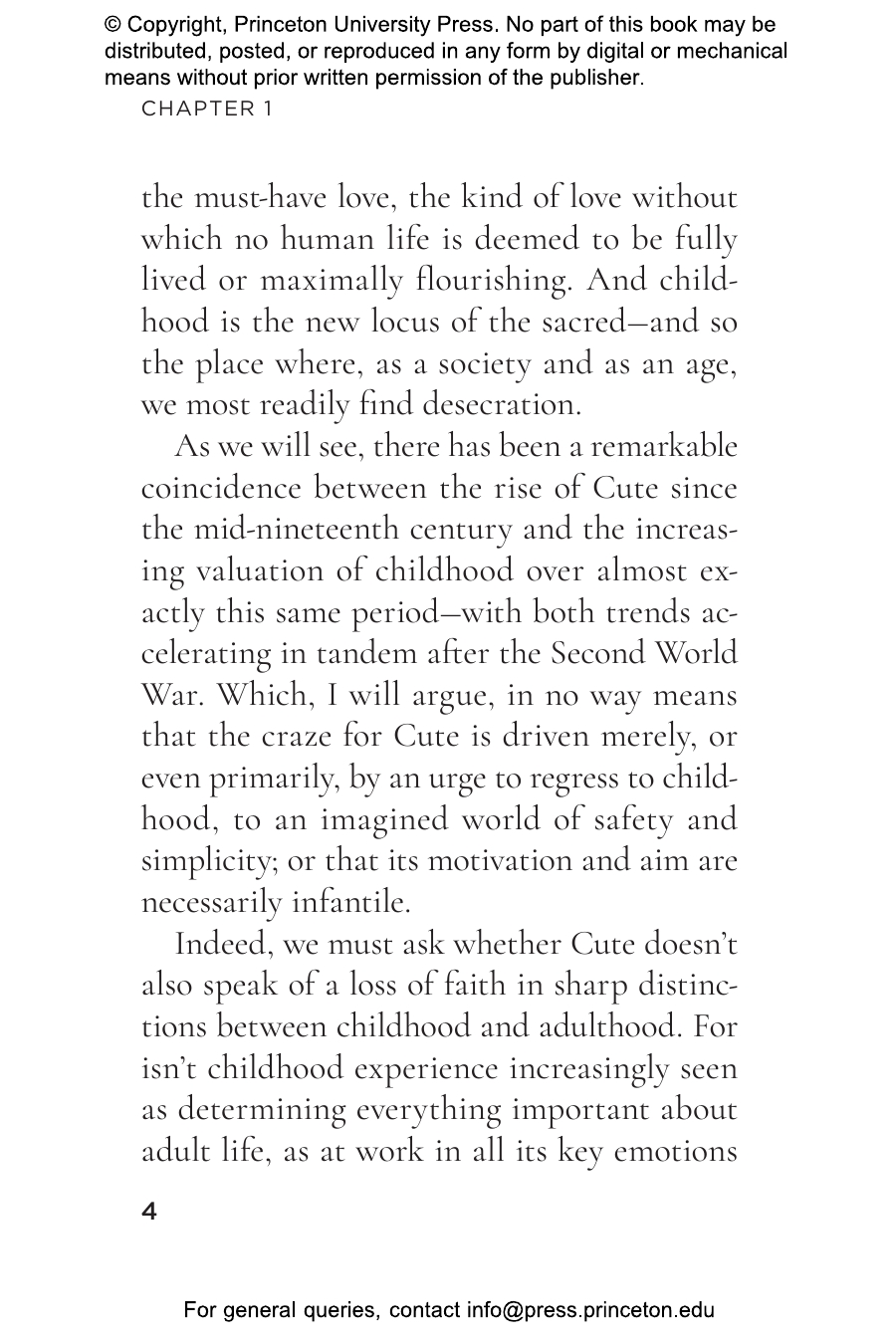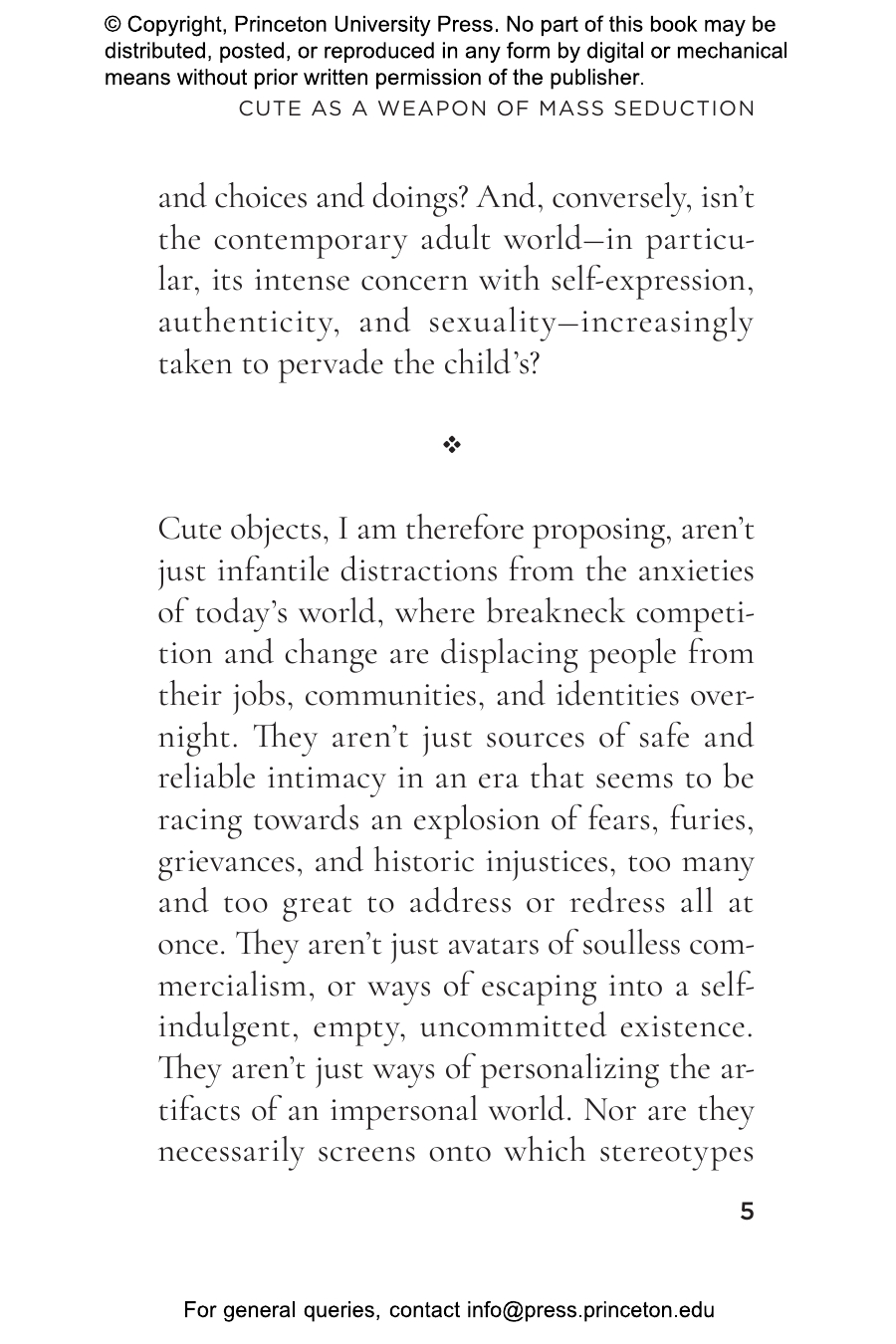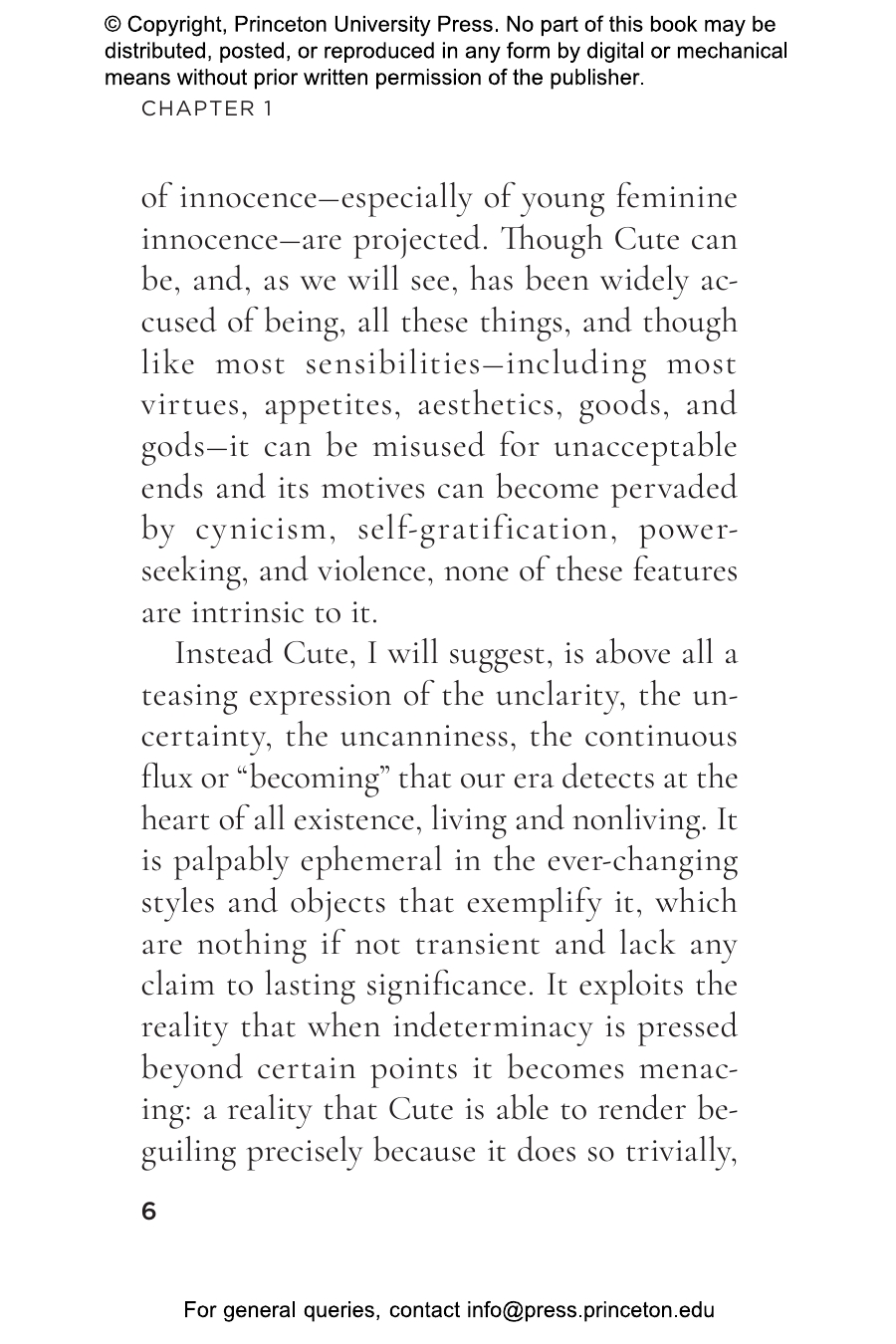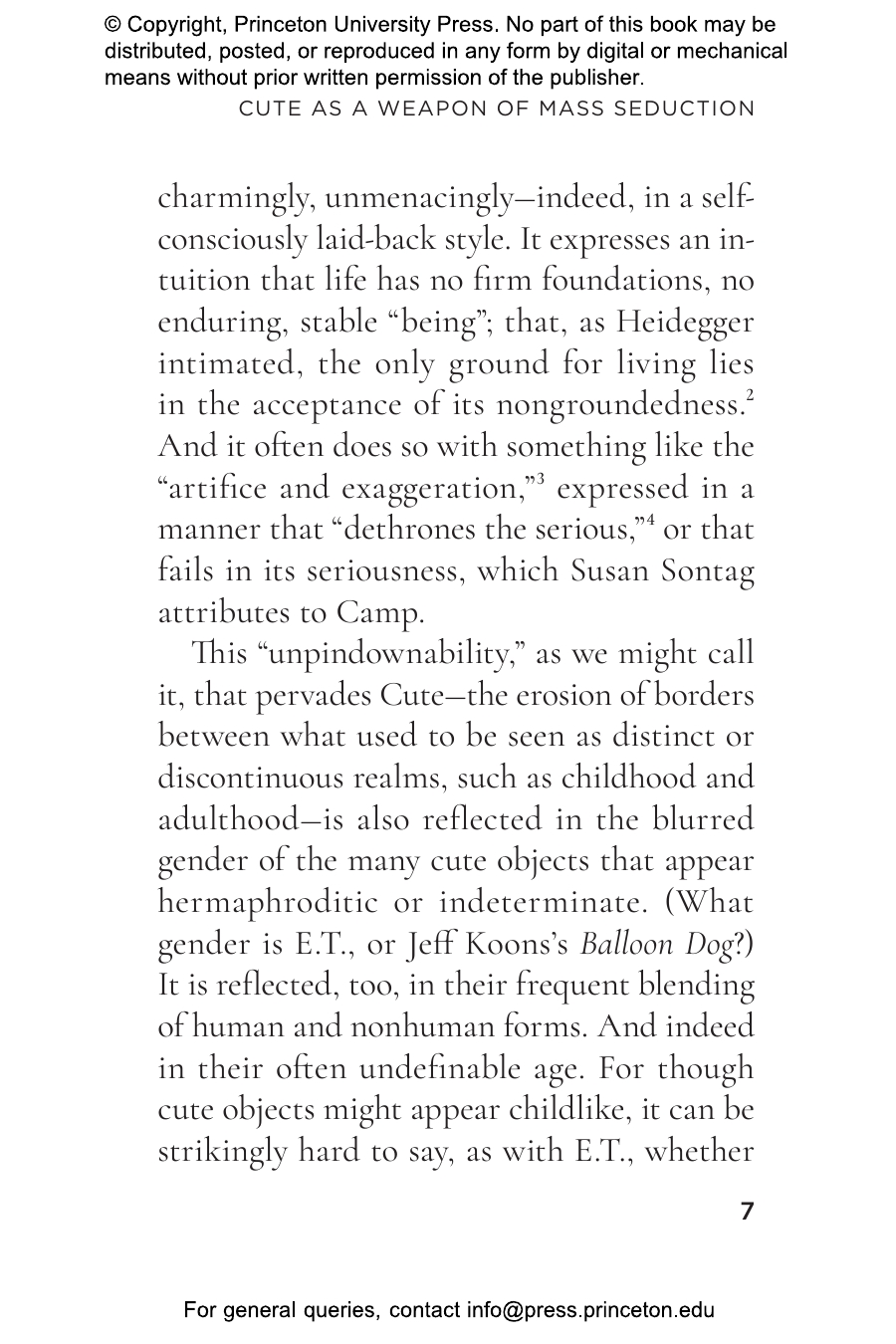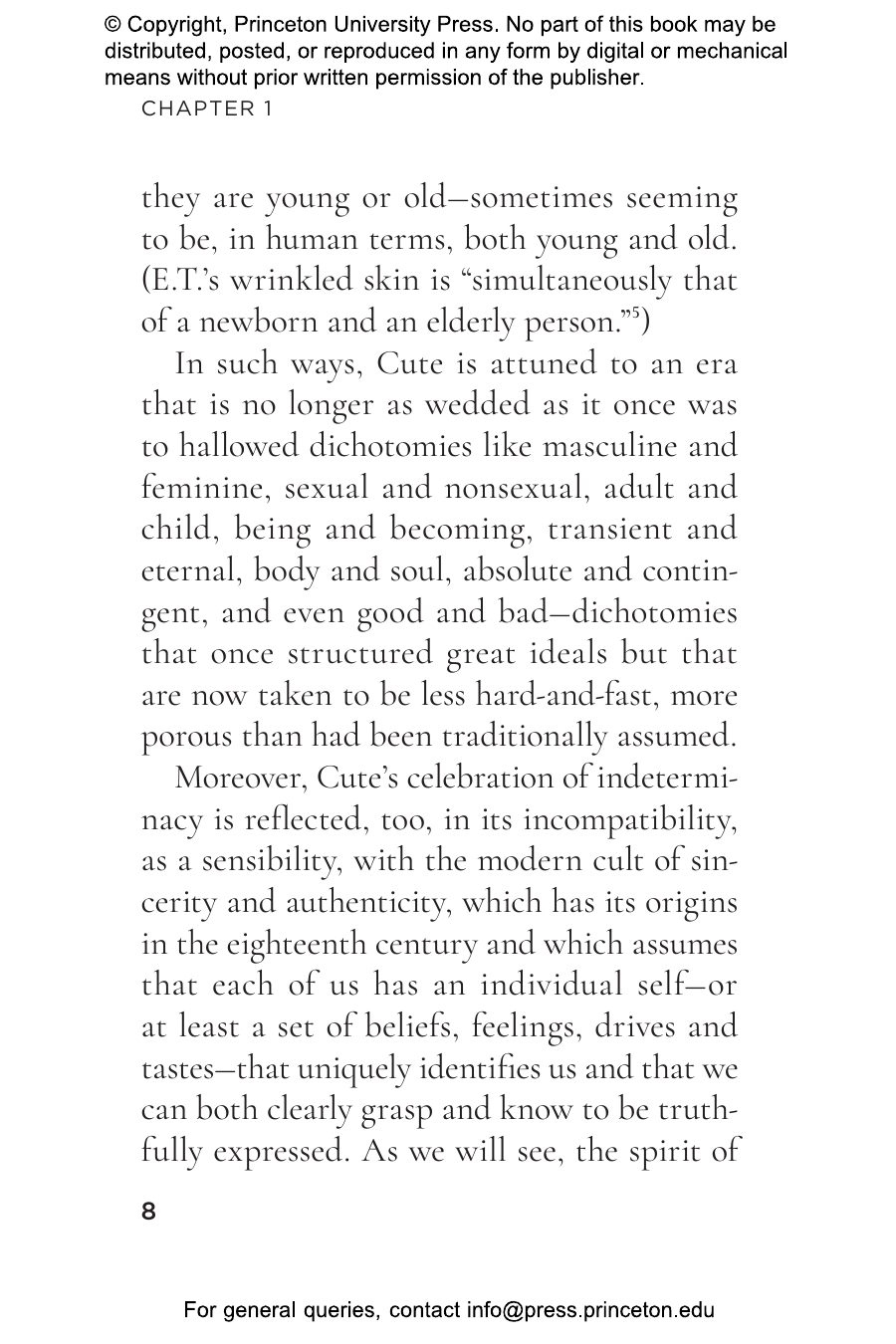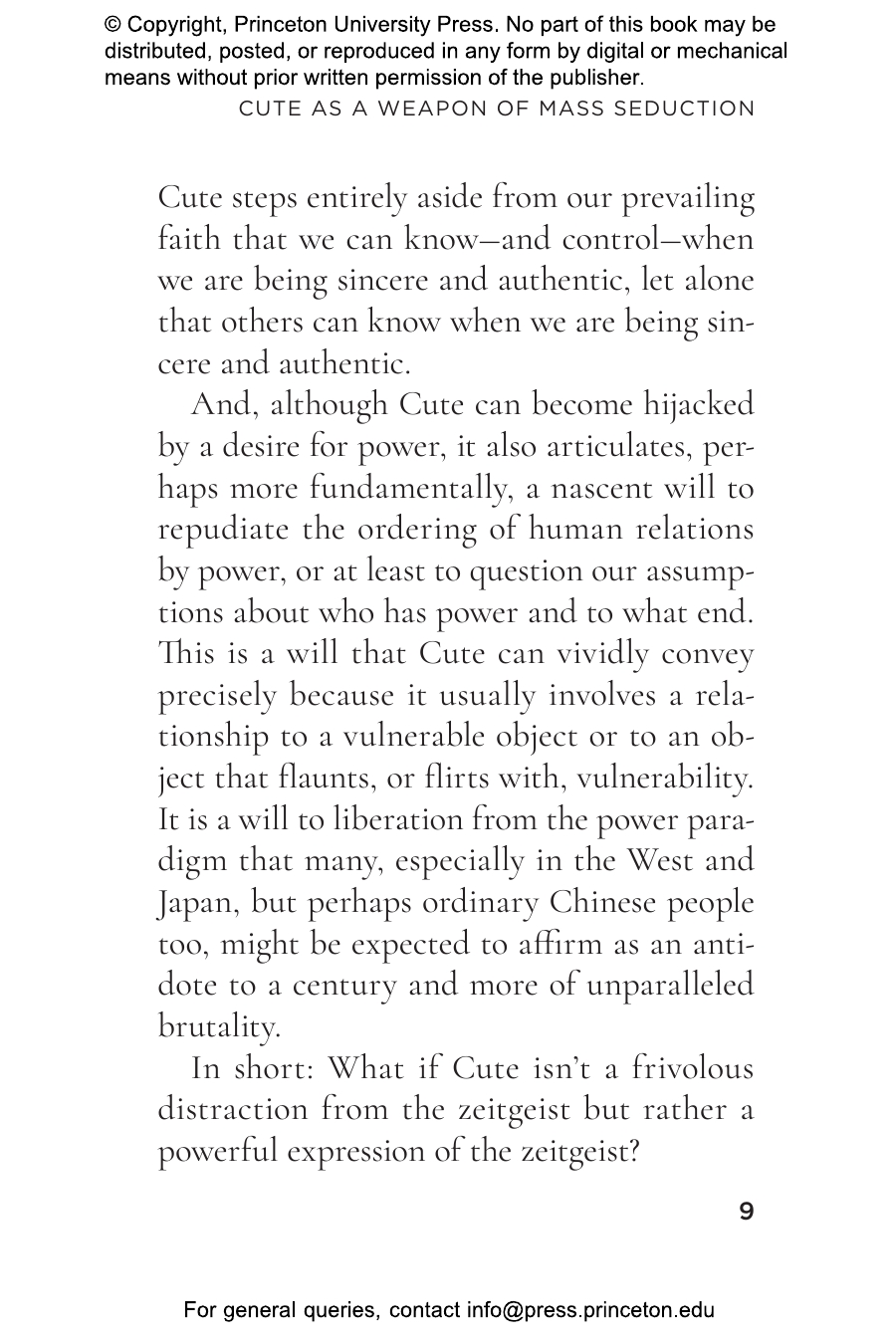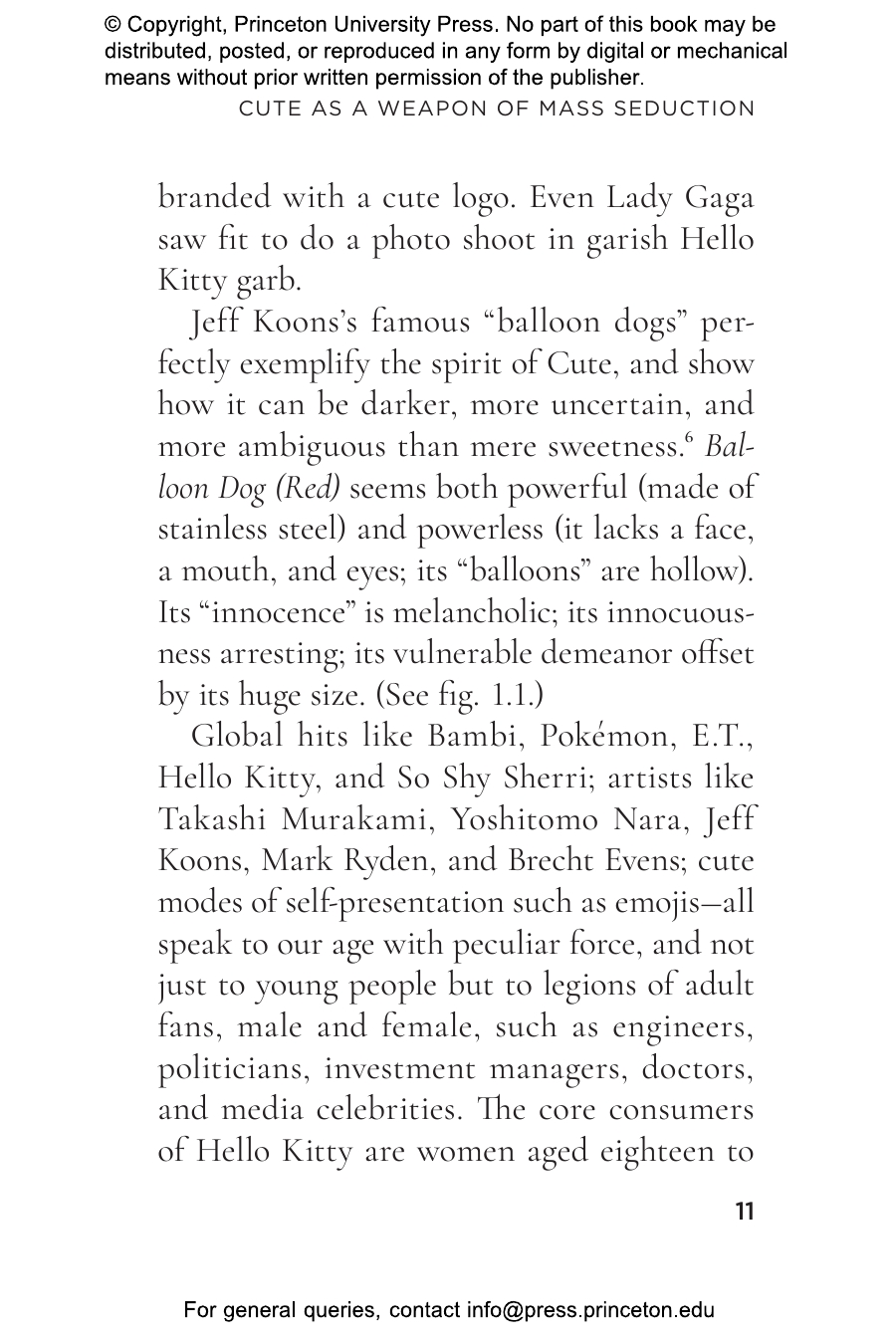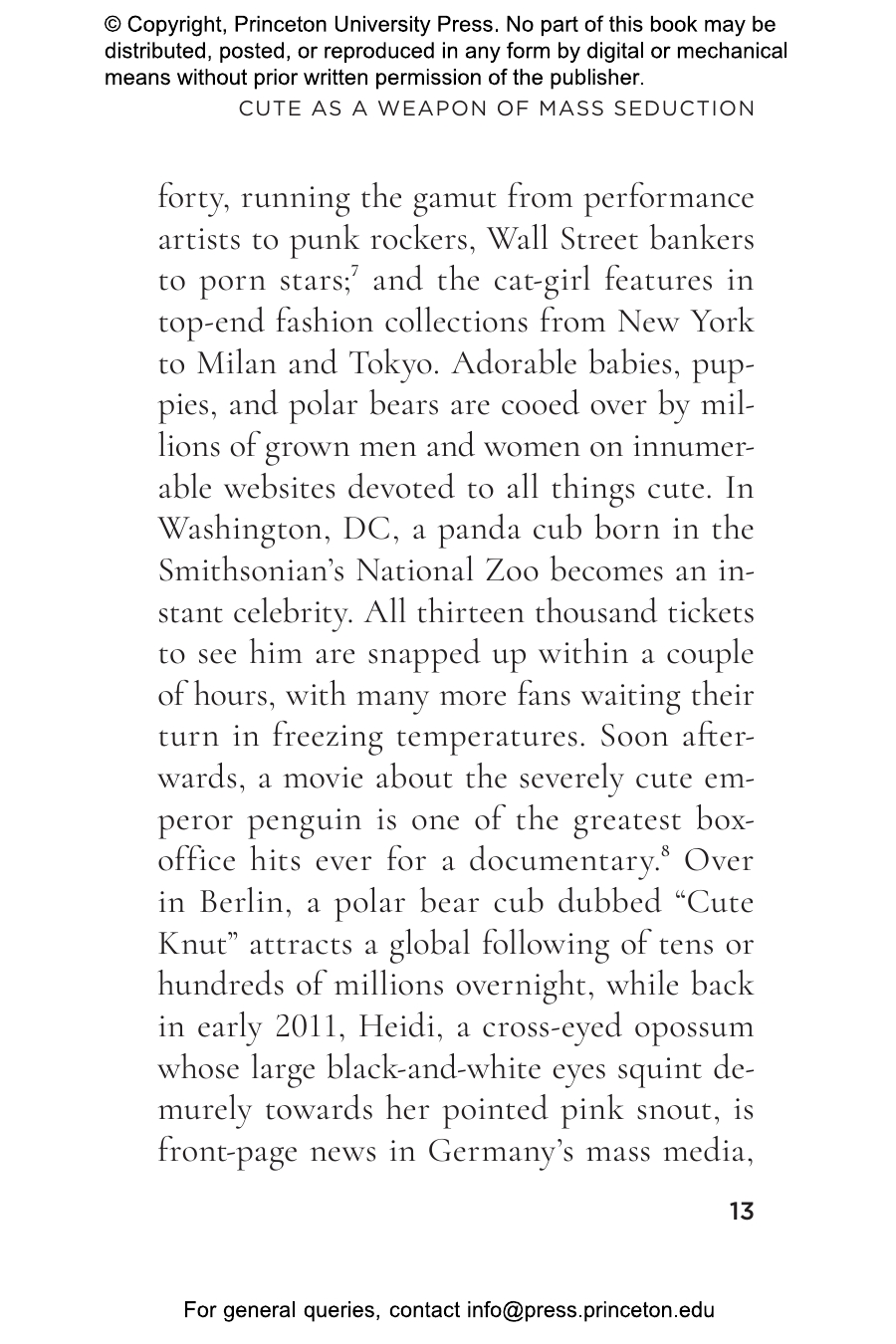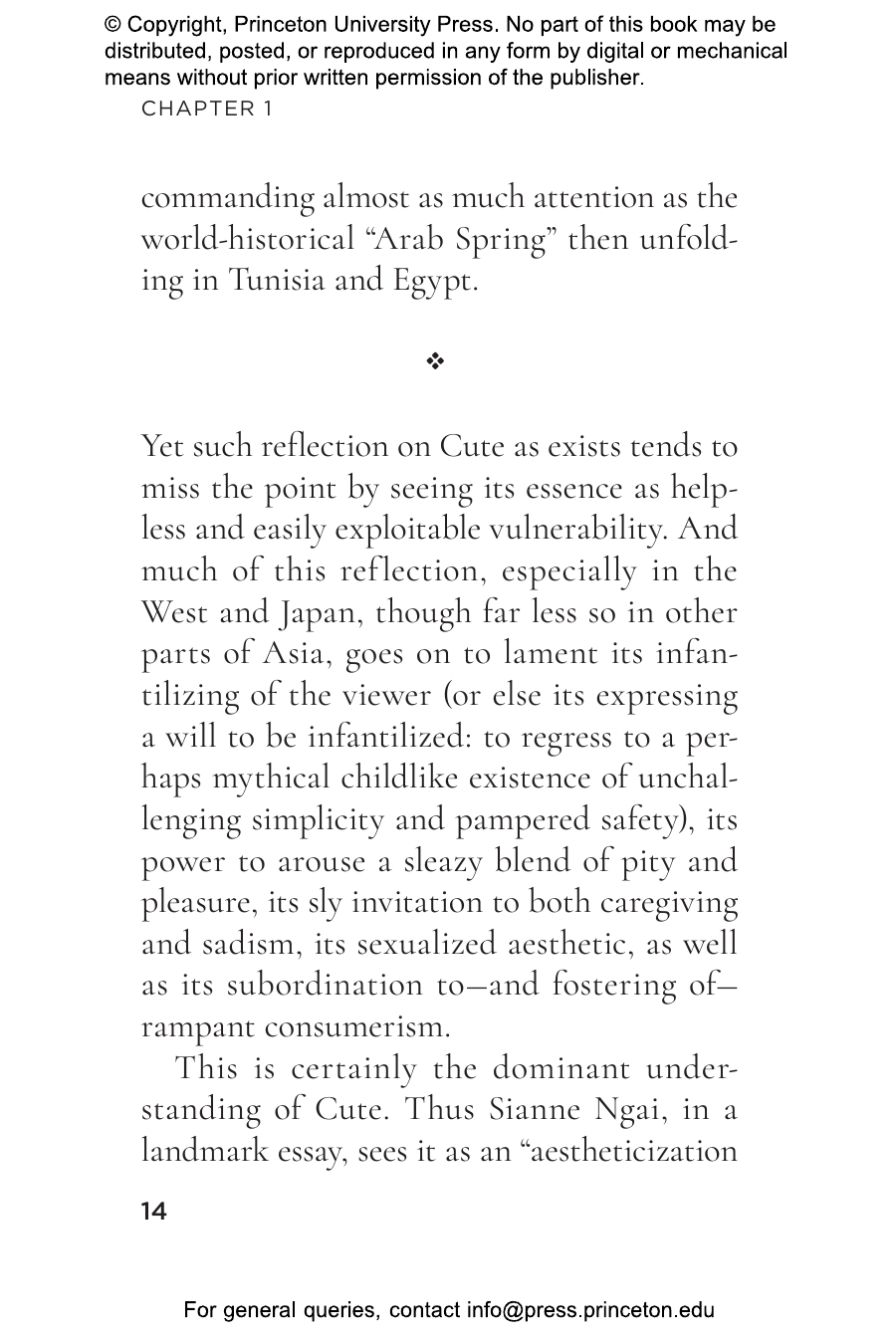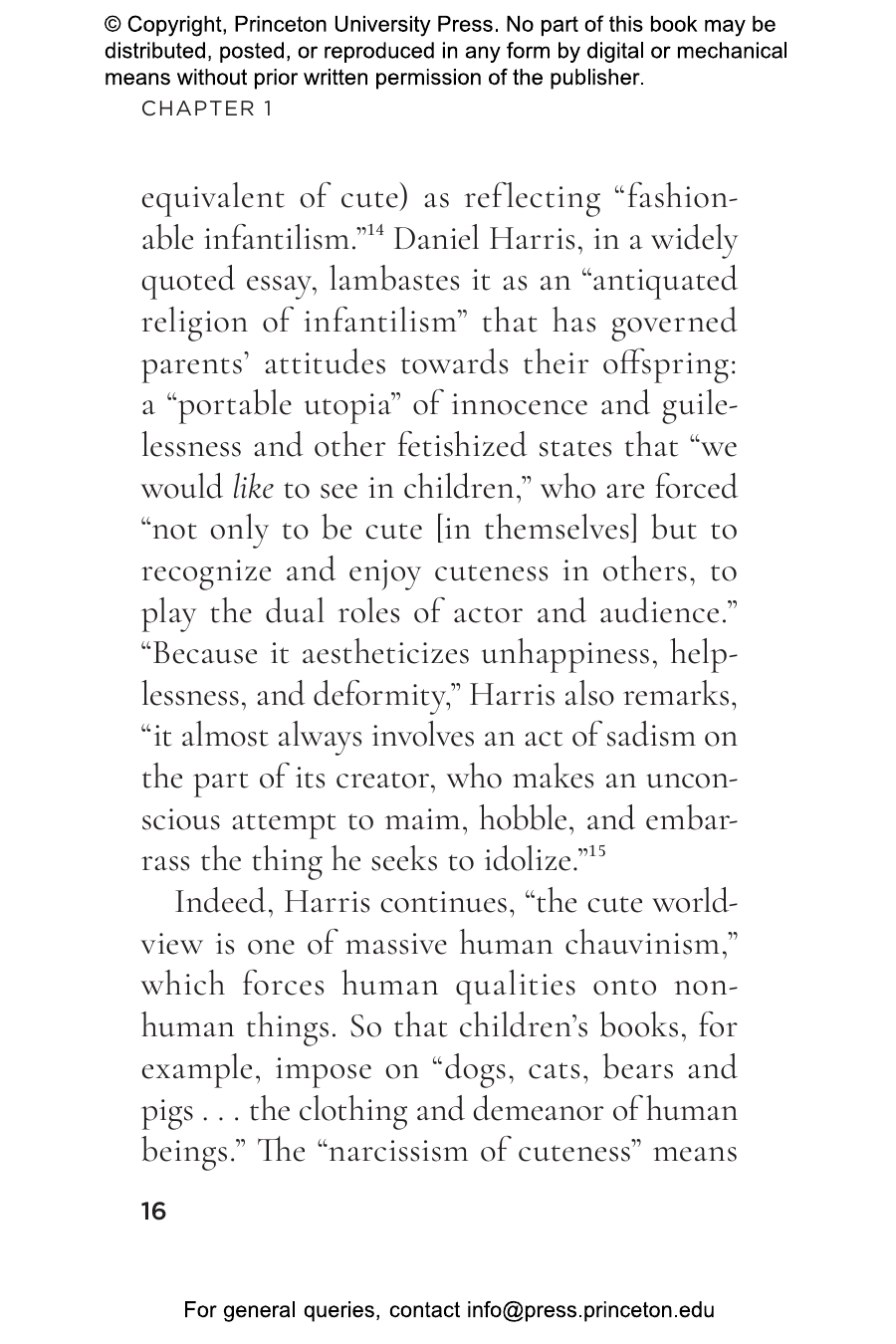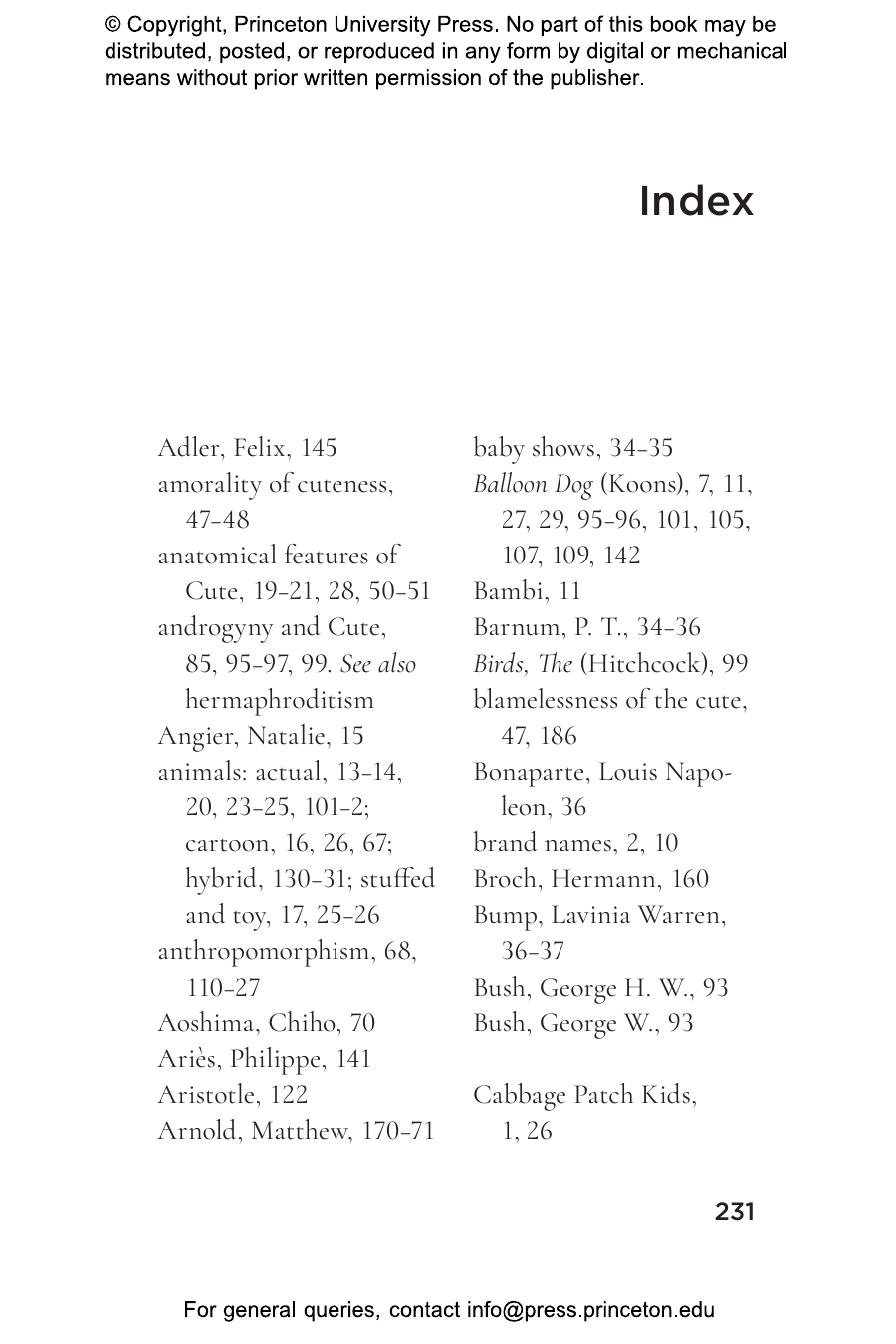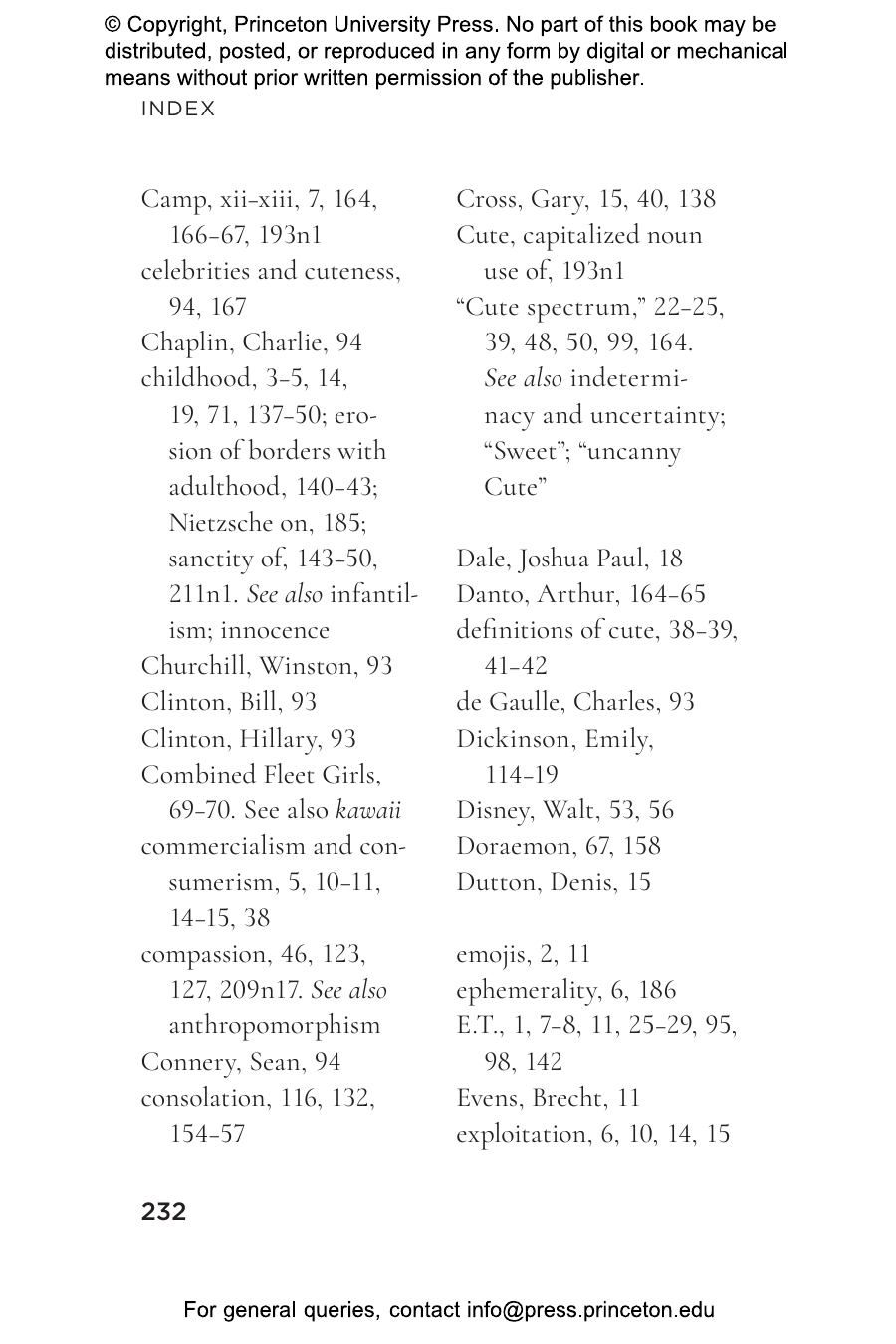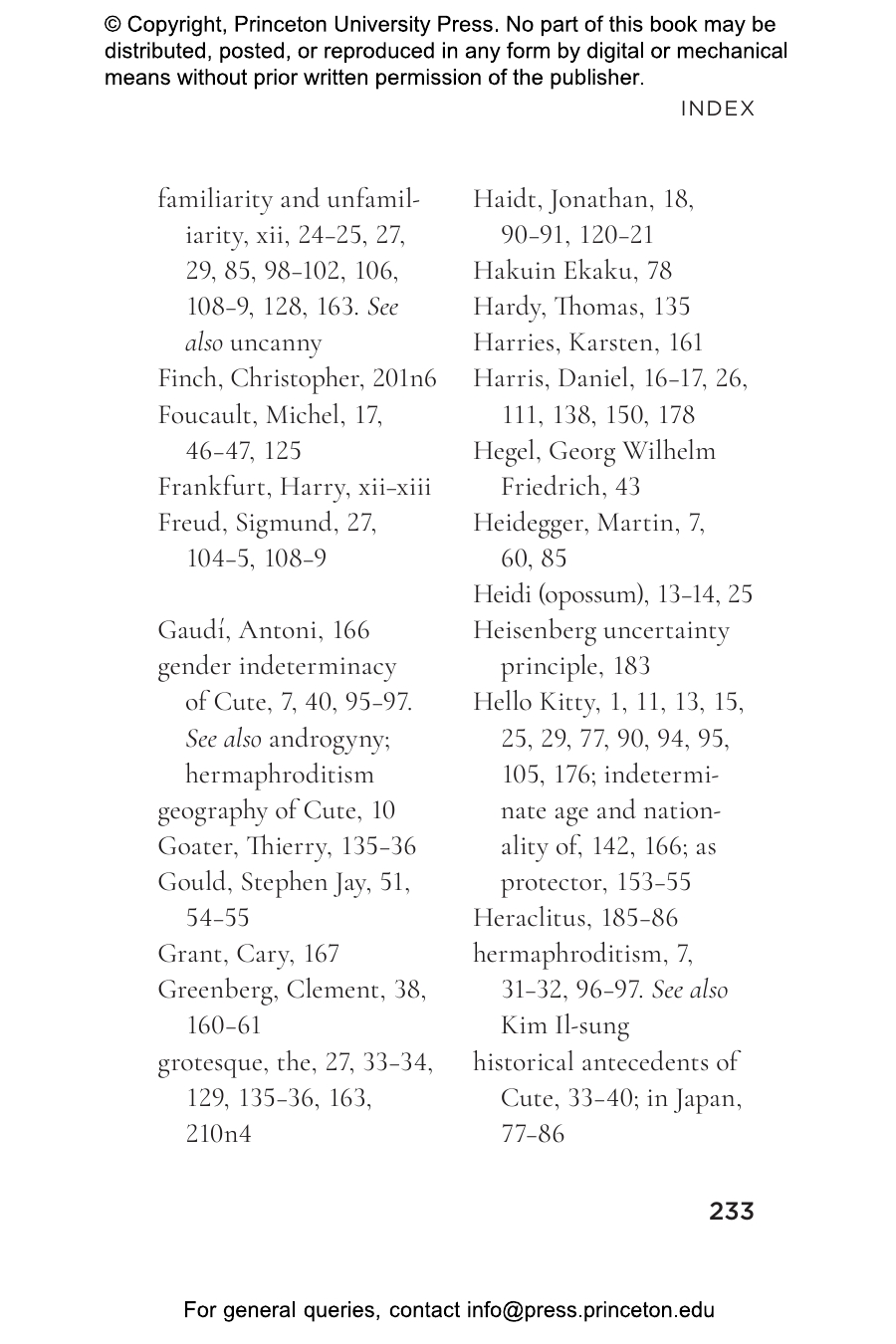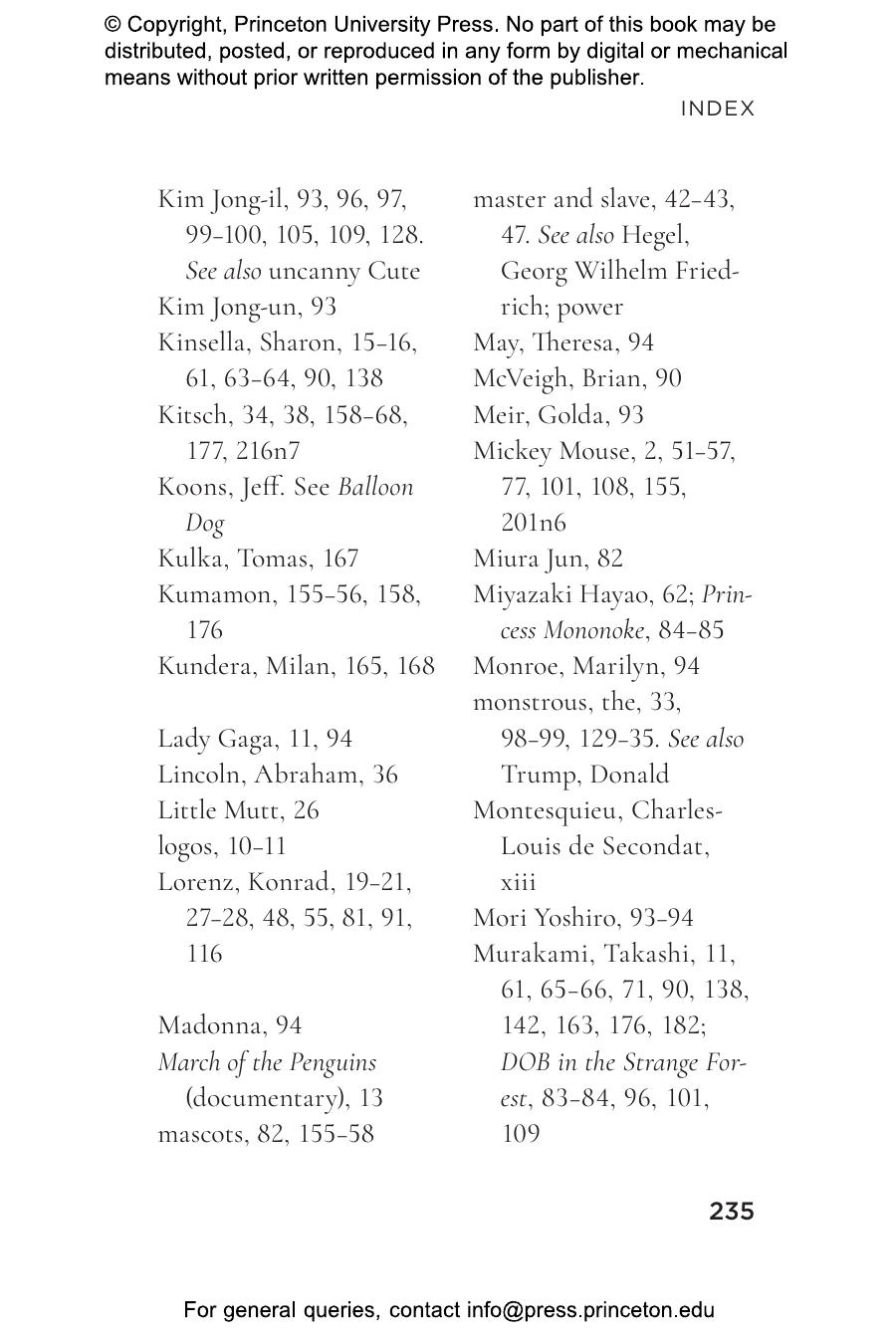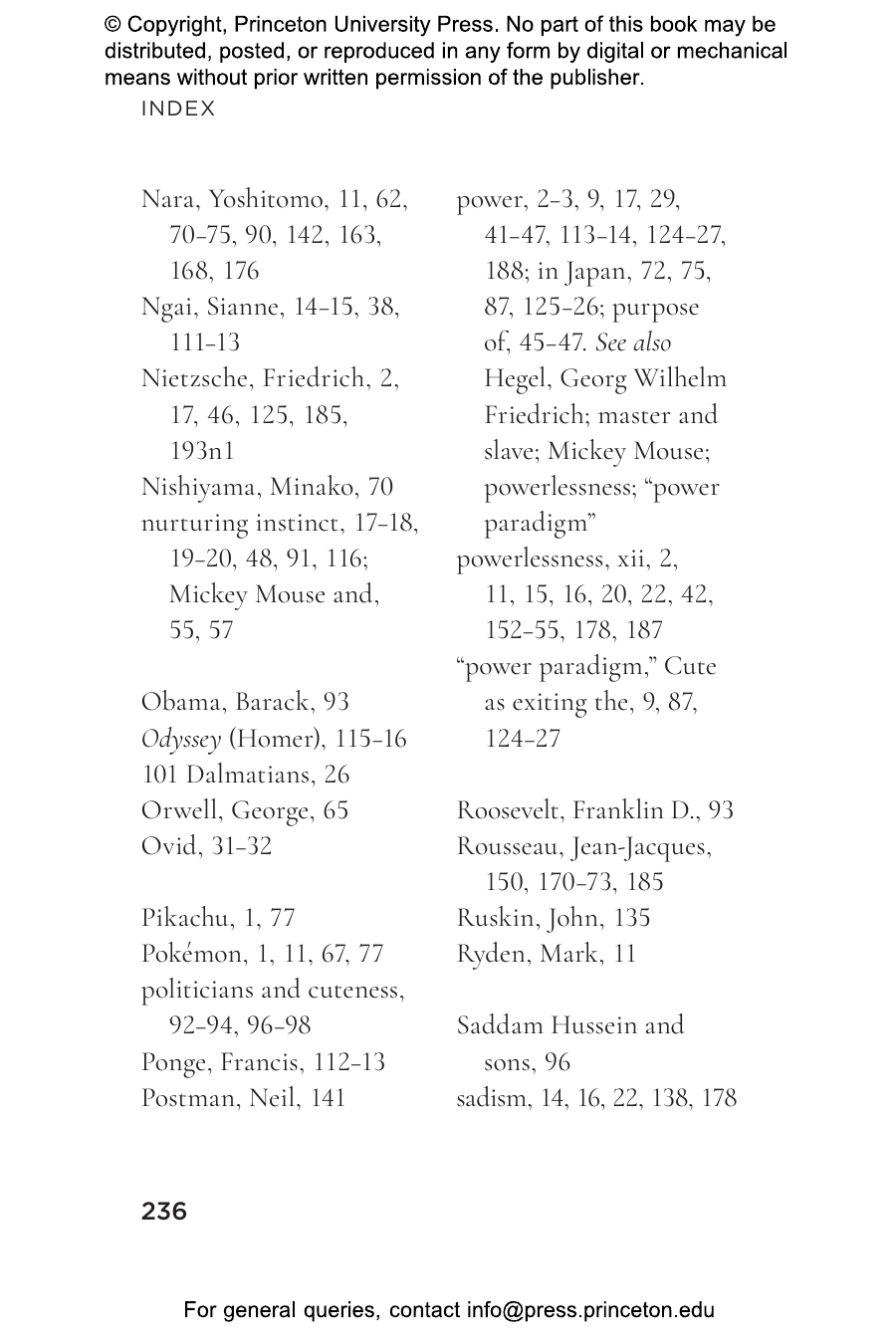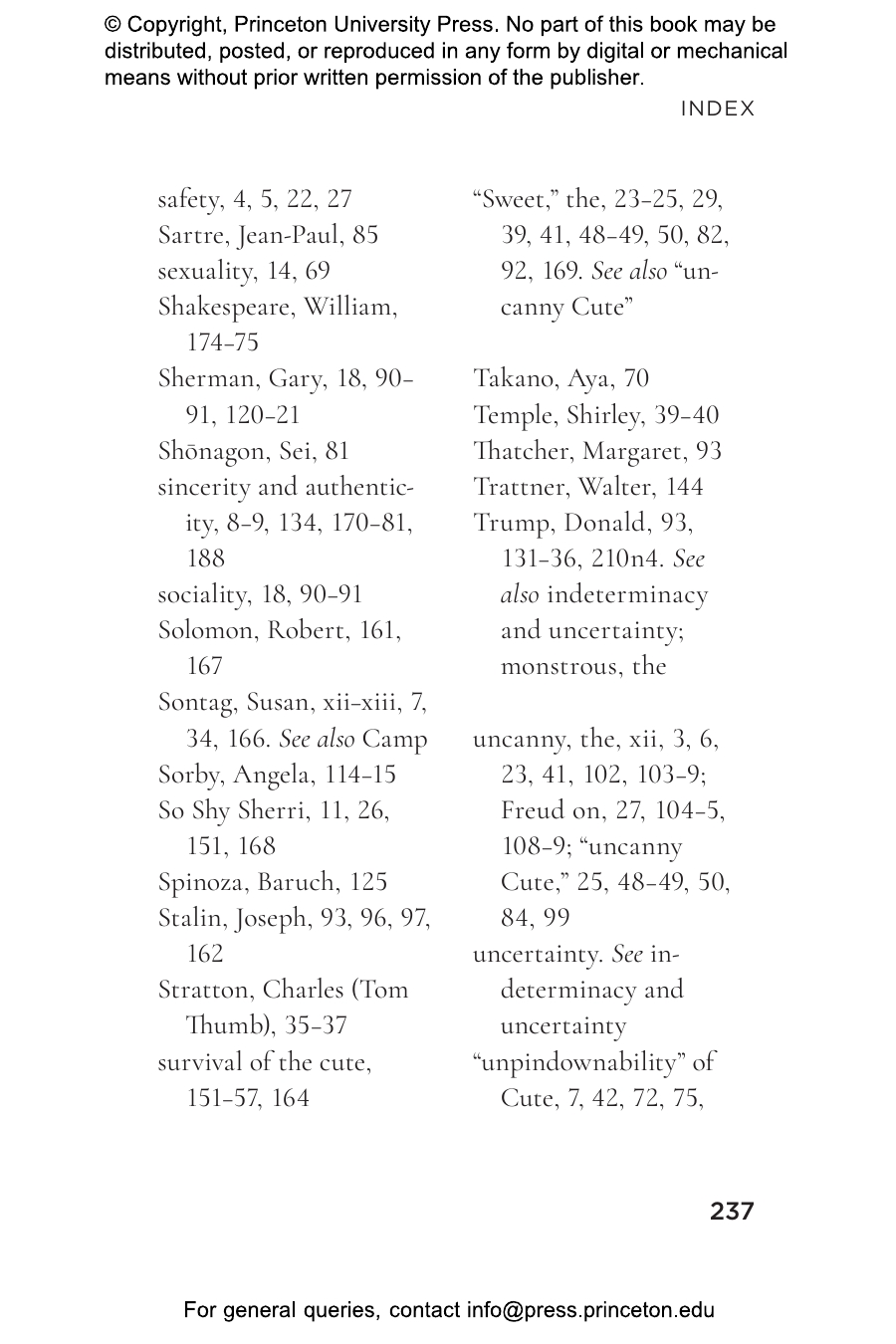Cuteness has taken the planet by storm. Global sensations Hello Kitty and Pokémon, the works of artists Takashi Murakami and Jeff Koons, Heidi the cross-eyed opossum and E.T.—all reflect its gathering power. But what does “cute” mean, as a sensibility and style? Why is it so pervasive? Is it all infantile fluff, or is there something more uncanny and even menacing going on—in a lighthearted way? In The Power of Cute, Simon May provides nuanced and surprising answers.
We usually see the cute as merely diminutive, harmless, and helpless. May challenges this prevailing perspective, investigating everything from Mickey Mouse to Kim Jong-il to argue that cuteness is not restricted to such sweet qualities but also beguiles us by transforming or distorting them into something of playfully indeterminate power, gender, age, morality, and even species. May grapples with cuteness’s dark and unpindownable side—unnerving, artful, knowing, apprehensive—elements that have fascinated since ancient times through mythical figures, especially hybrids like the hermaphrodite and the sphinx. He argues that cuteness is an addictive antidote to today’s pressured expectations of knowing our purpose, being in charge, and appearing predictable, transparent, and sincere. Instead, it frivolously expresses the uncertainty that these norms deny: the ineliminable uncertainty of who we are; of how much we can control and know; of who, in our relations with others, really has power; indeed, of the very value and purpose of power.
The Power of Cute delves into a phenomenon that speaks with strange force to our age.
"May is a lively guide to the uncanny world of Cute, his analysis keen and his sense of humour sharp. You won’t look at Kim Jong-il and Donald Trump in the same way again."—Francesca Carington, Tatler
"A short, snappy treatise. . . . A playful riposte to our self-conscious, drearily introspective age."—Frankie McCoy, Standpoint
"[May] posits that our mania for cute can have sinister repercussions, and might even explain the rise of Donald Trump."—Kate Wills, Evening Standard
“We think we have power over cute things—but maybe the boot is on the other foot, and cute things manipulate us. The Power of Cute considers the notion that when we find things or people cute, ambivalence is in the air: on the one hand, cute things are infantile and unthreatening, on the other hand, uncanny or unsettling. This intelligent and thought-provoking book breaks new ground.”—Simon Blackburn, author of Mirror, Mirror
“Modern taste has been shaped by new and emerging concepts poised on the borderline between moral and aesthetic judgment. One of these concepts is that of ‘the cute’ and Simon May has done a great service in subjecting this poor, sweet, and vulnerable idea to a hearty conceptual thrashing. This book will be read and enjoyed by all with a satirical interest in the world of sentimental emotions.”—Roger Scruton, author of The Soul of the World
"In The Power of Cute, Simon May explores the most fascinating effect of cuteness—namely that moment in which what seemed at first to be merely adorable and perhaps heartwarming tips over into something strange, unsettling, and alien. In May's hands, the cute object becomes a figure that toggles back and forth between two disparate worlds, simultaneously producing anxiety and delight."—Christy Wampole, Princeton University
“The Power of Cute examines an acute yet virtually unnoticed part of contemporary society, the rise of cuteness. A joy to read, this book is terrifyingly brilliant and continuously surprising, filled with subtle insights and wonderful theorizing.”—Jeffrey C. Alexander, Yale University
“From powerlessness to tyranny, and from the fluffy dog in the window to Kim Jong-il’s hairstyle, ‘the cute’ raises the abysmal issue of the world’s desire for meaninglessness. Comforting and uncanny at the same time, cuteness incarnates nihilism as plenitude, infantilism as art, and desexualization as seduction. Simon May’s humorous and profound book explores the secret dimensions of a new religion, raising the question: Is cuteness an attribute of God?”—Catherine Malabou, Kingston University London
“In this highly readable and erudite book, Simon May develops a theory of ‘the cute.’ May probes a range of cases, particularly of artificial cuteness—Hello Kitty, Pokémon, E.T., Kewpie dolls—and gives searching reflections on what the ascendancy of cute might reflect about our broader societal values and present historical moment.”—Andrew Huddleston, Birkbeck, University of London




